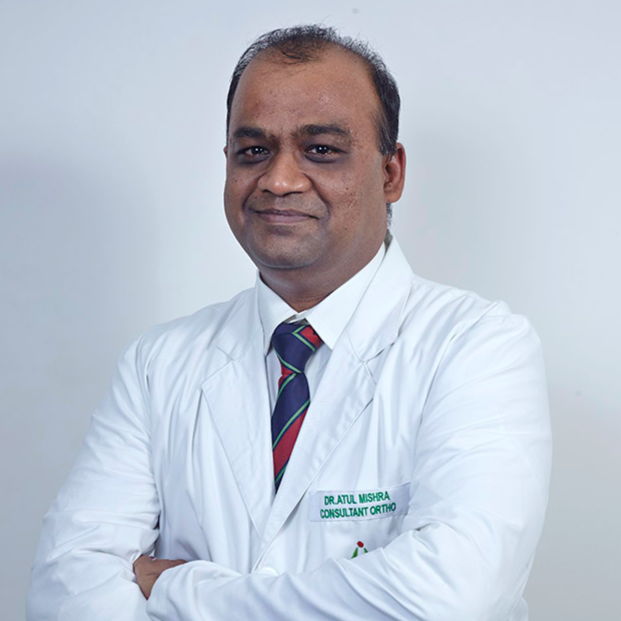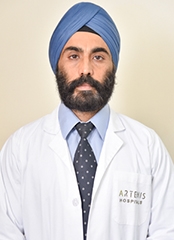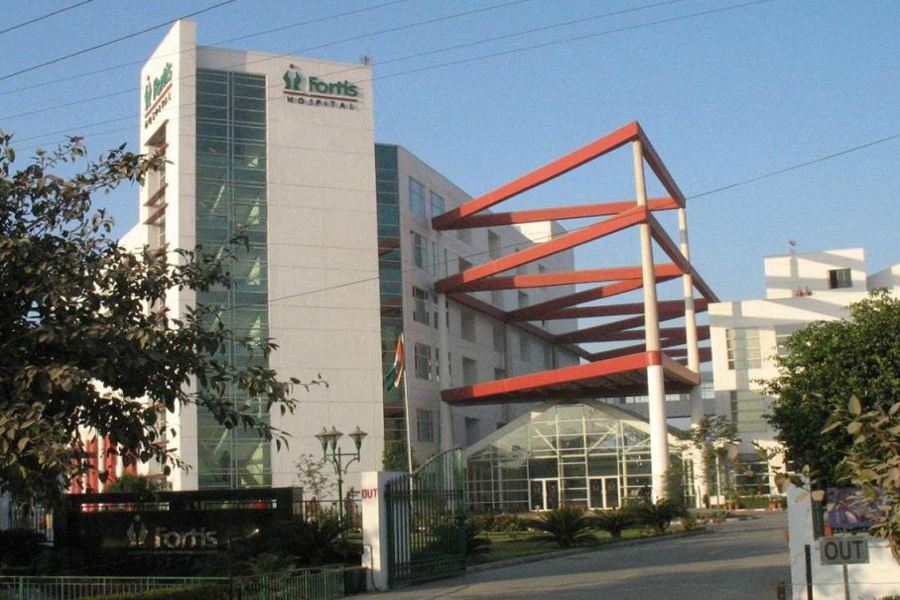About the Doctor
Dr Atul Mishra completed his MS orthopedics in year 2001.
Thereafter he did extensive training at different hospitals in New Delhi till joining as fellow in Chiba University Tokyo, Japan for knee replacement training.
From japan he went for further training in knee replacement and sports medicine to Rizzoli Orthopedic Institute Bologna, Italy and University of Marburg Germany.
After successful completion of training he went to University of Arizona, USA for shoulder training. Presently he is working as Director and head of department of orthopedics at Fortis Hospital, Noida. He is doing exclusive practice of joint replacement and arthroscopy for last 20 years. He does approximately 800- 900 joint replacement surgeries in a year and equal no of arthroscopy procedures. He does primary joint replacement surgeries, revisions, partial /unicondylar knee replacement, and computer navigated joint replacement surgeries.
Specialization
Frequently Asked Questions About Orthopaedic Surgery
What are the common types of shoulder injuries?
osteoarthritis, inflammatory arthritis, tearing of the rotator cuff, and shoulder fracture are some examples of shoulder injuries.
What is osteoarthritis?
It is a degenerative bone disease affecting people over 50 years and has no cure.
This is caused by the damage due to “wear and tear” of the cartilage. As a result of the worn out cartilage, the bones rub against each other and cause extreme pain.
What is inflammatory arthritis?
This is an umbrella term for a group of autoimmune diseases that have no cause. Autoimmune diseases are diseases that result when the immune system attacks the body’s tissues instead of foreign elements.
When is shoulder replacement surgery recommended?
Shoulder replacement surgery is recommended when there is shoulder pain which is severe and interferes with one’s daily activities, shoulder pain even during resting hours, weakness in the shoulder, and loss of motion of the shoulder.
What is tendon repair surgery?
A tendon repair surgery is a surgical intervention which is conducted to remove, replace, and/or repair a damaged tendon.
What are the risks of tendon repair surgery?
The risks associated with a tendon repair surgery are anesthesia allergy, loss of motion to a degree, scar tissue, and second tendon tear.











